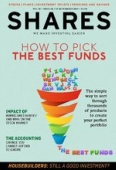Archived article
Please note that tax, investment, pension and ISA rules can change and the information and any views contained in this article may now be inaccurate.
Are housebuilders still a good investment?

Flintshire-headquartered Redrow (RDW) appears to be the winner of the latest set of financial results from the housebuilding sector.
We also note that investor sentiment has finally turned positive towards Bovis Homes (BVS). Its recovery plan was well received last week, helping to shift the focus away from an earlier scandal over the quality of its construction.
Why has Redrow emerged victorious?
Numis analyst Chris Millington says Redrow’s management has ability to ‘under-promise and over-deliver’.
Alongside results on 5 September, the housebuilder set ambitious targets for 2020 of £2.2bn in turnover and pre-tax profit of £430m thanks to strong performance and robust demand.
In the year to 30 June 2017 sales increased 20% to £1.66bn, driven by higher legal completions and a 7% rise in the average selling price to £309,800.
The company also anticipates the dividend will rise to 32p per share in 2020, almost double the 17p for the year just gone. That implies a 5.1% yield in three years’ time – which is already eclipsed by the 6%+ returns expected this year from Bovis and Persimmon (PSN).
Has Redrow been a good investment?
Redrow has delivered 32.6% total return over the past two years, being share price appreciation and dividend income. That’s about the same as Persimmon but a lot better than Bovis’s 12.6% total return, according to data from SharePad.
Canaccord Genuity analyst Aynsley Lammin notes Redrow’s management, led by chief executive John Tutte who has been at the helm since 2014, ‘has shown itself to be opportunistic and entrepreneurial as well as adaptable over the last few years’.
Lammin adds: ‘The group has a good land bank from which it expects to generate an attractive return on capital employed of more than 25% going forward.’
What's happening with the other quoted housbuilders?
The UK’s largest housebuilder, Barratt Developments (BDEV), warned in July of only modest growth in housebuilding in 2018. That view remained the same when it reported full year numbers on 6 September.
There was also some disappointment that Barratt did not offer firm guidance on margin performance. It has proved to be a poor investment on a two year view, having only delivered 3.5% total return. It has fared better over the past year with its shares up 21%.
In an otherwise in-line trading update (6 Sep), London-focused Berkeley Homes (BKG) warned the London market continued to face pressure from Brexit-inspired uncertainty and tax changes.
Why is Bovis back in fashion?
Bovis Homes is an outlier in the sector as industry veteran and chief executive Greg Fitzgerald looks to lead a recovery in the company from previous problems.
Two profit warnings around the turn of the year, the departure of previous chief executive David Ritchie in January, and a £7m compensation payment to customers for defects in their new homes, left investors frustrated with the company.
A positive response last week to Fitzgerald’s pledge to increase its gross margin to 23.5% from the current 18.3% by 2020s suggests he is off to a promising start.
Is the sector still a good investment?
As the accompanying graphics show, on a price-to-earnings basis Bovis is the most expensive housebuilder. It is lagging its peers on a price to net asset value basis which is typically a better measure of a housebuilder’s value. All the major quoted housebuilders are trading at a premium to net asset value.
AJ Bell investment director Russ Mould comments: ‘The question investors must therefore address is whether the industry’s excellent near-term profit momentum can be maintained.
‘If so, asset valuations will continue to rise and the sector will look less expensive (and even cheap over time) and for the moment demand clearly continues to outstrip supply.’
Despite positive sector fundamentals, we do note several very large share disposals over the past week by directors and associated parties at two of the major housebuilders. These transactions don’t exactly fill us with confidence as they send a negative signal.
Berkeley’s chairman Anthony Pidgley sold £26.8m worth of shares, having already sold £31m of stock five months ago. The wife of Berkeley chief executive Robert Perrins offloaded just under £17.9m of stock.
Redrow’s legal director Graham Cope sold nearly £1.9m worth of shares. And the company’s founder and chairman Steve Morgan sold a 7% stake for £152.8m.
Important information:
These articles are provided by Shares magazine which is published by AJ Bell Media, a part of AJ Bell. Shares is not written by AJ Bell.
Shares is provided for your general information and use and is not a personal recommendation to invest. It is not intended to be relied upon by you in making or not making any investment decisions. The investments referred to in these articles will not be suitable for all investors. If in doubt please seek appropriate independent financial advice.
Investors acting on the information in these articles do so at their own risk and AJ Bell Media and its staff do not accept liability for losses suffered by investors as a result of their investment decisions.
 magazine
magazine











